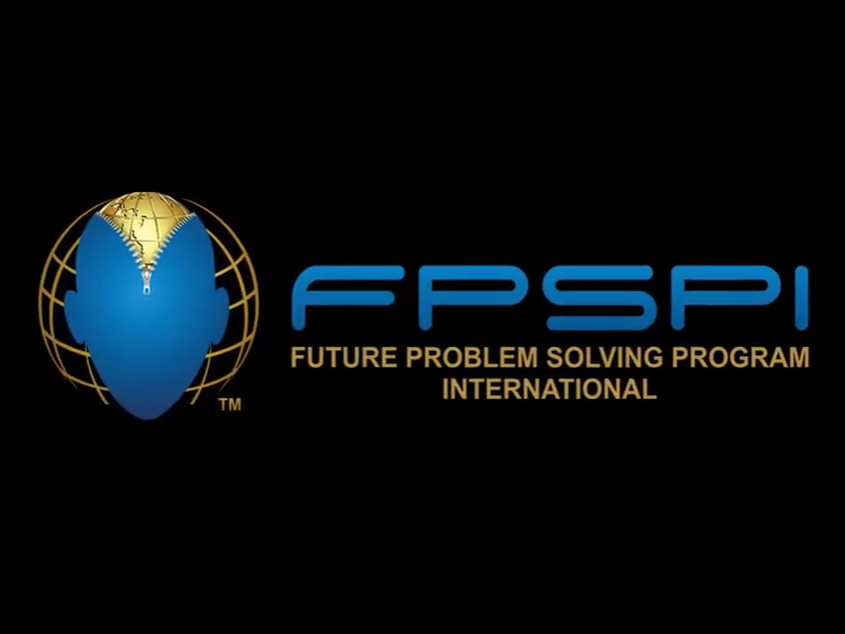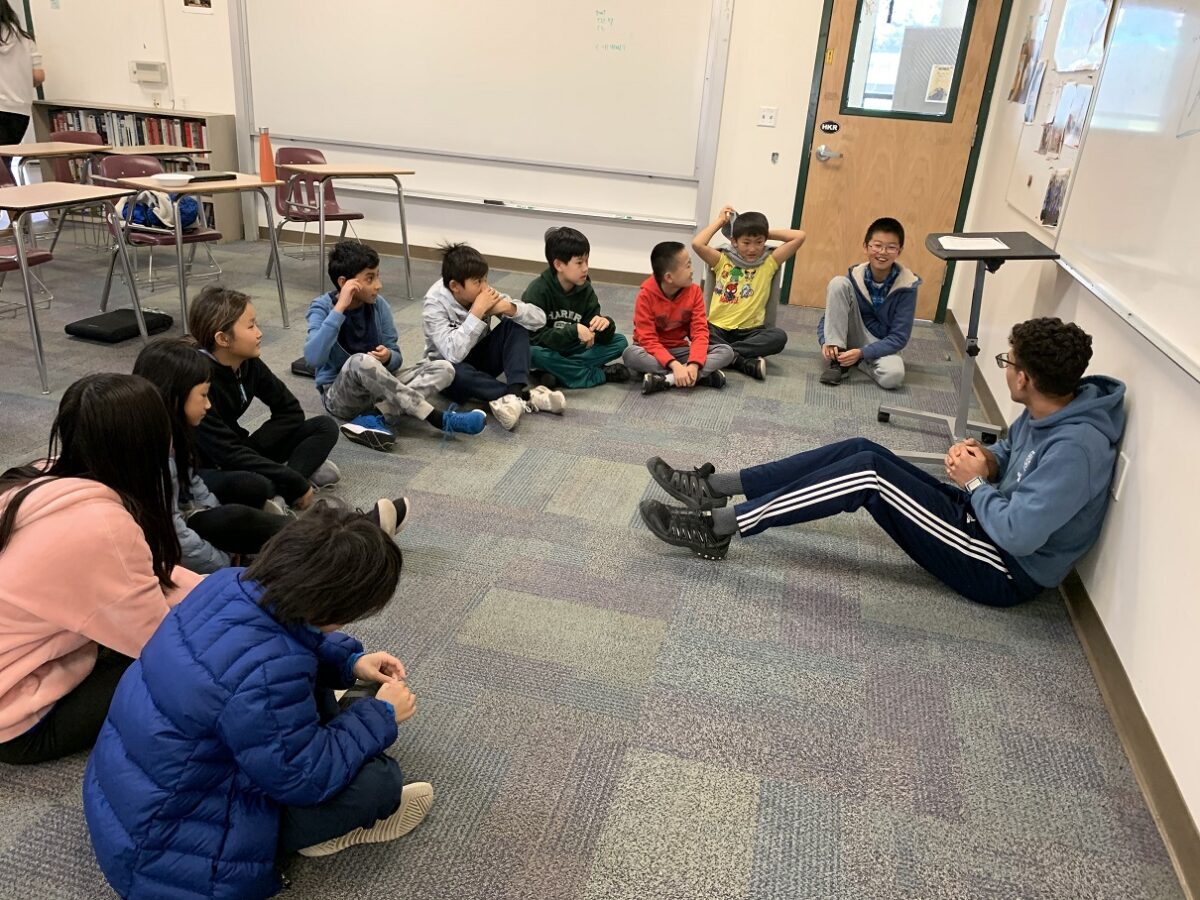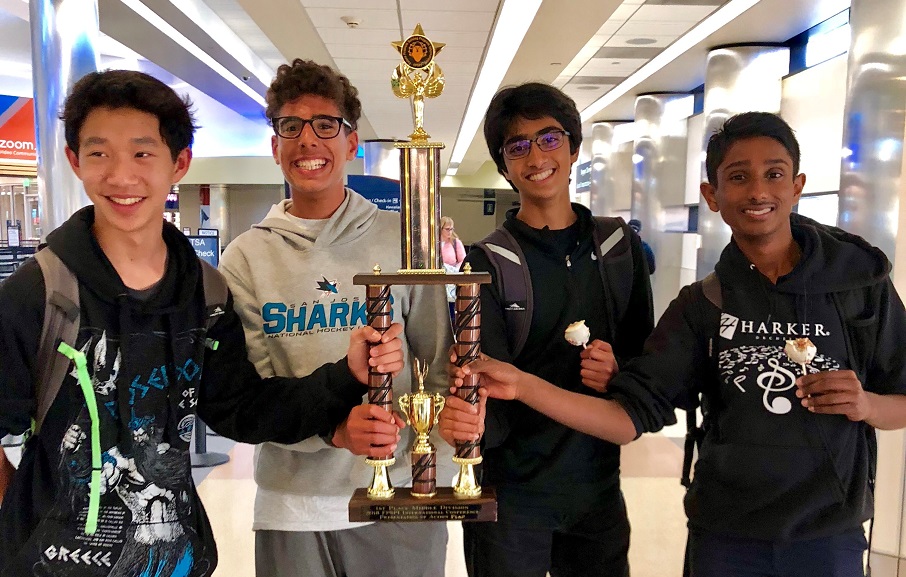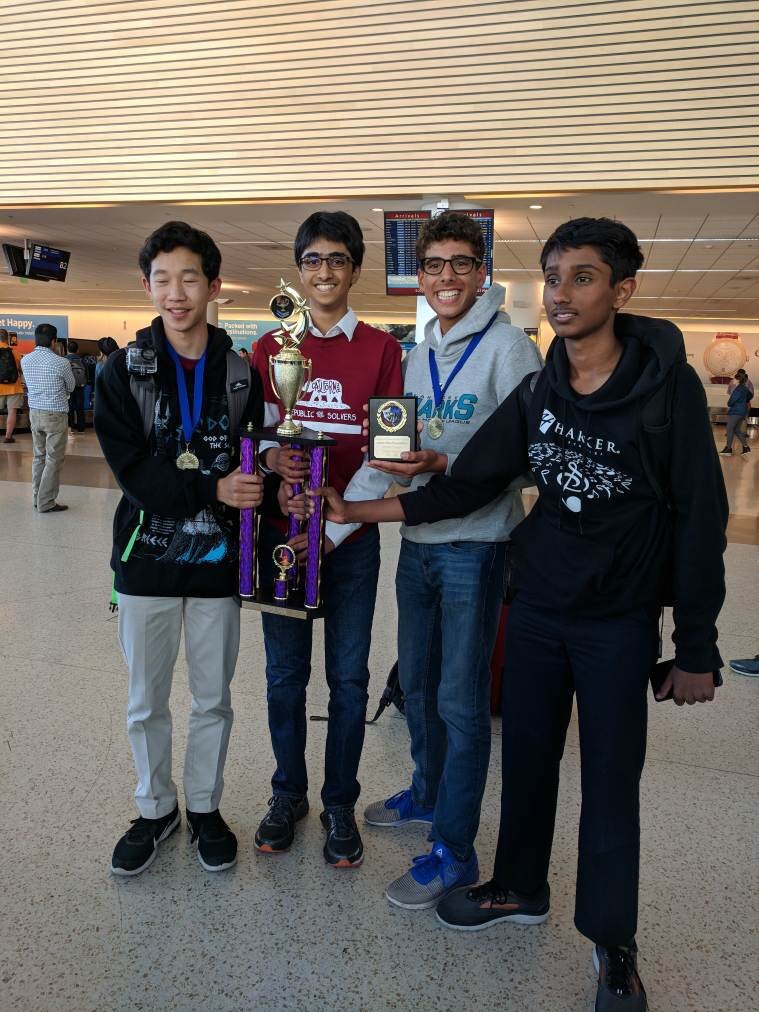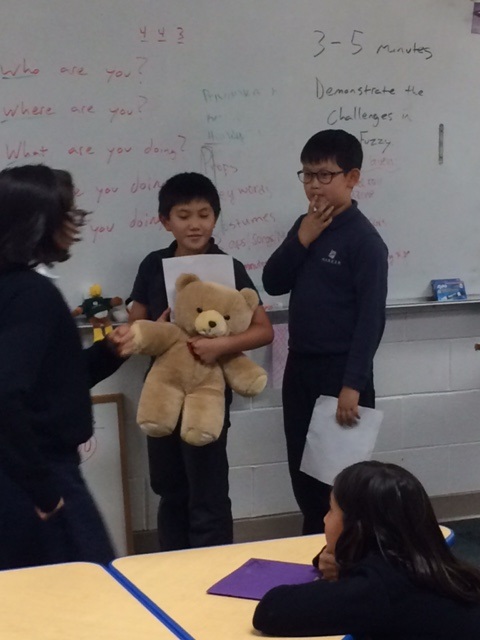Several Harker students qualified to compete at the international level, and more earned top spots at the state finals of this year’s Future Problem Solving (FPS) competition.
Future Problem Solving
Another great year for Harker in Future Problem Solving as three teams qualify for international competition
Harker had another great year in the Future Problem Solving International competition, sending students in every division to the finals of the competition, which…
Middle school presentation takes first at Future Problem Solving Internationals
Eighth graders Rohan Thakur, Shahzeb Lakhani, Daniel Wu and Kailash Ranganathan had a successful run at last week’s Future Problem Solving Program International Conference,…
Students take top spots at Future Problem Solving State Bowl, grade 8 team bound for internationals
Harker students from the lower, middle and upper schools headed to San Diego last weekend for the Future Problem Solving California State Bowl, where teams from all three divisions won in various categories.
Future Problem Solving program extends to lower school
For many years, Harker’s Future Problem Solving program has proven invaluable to students in grades 6-12 who wish to engage in global issues while…
